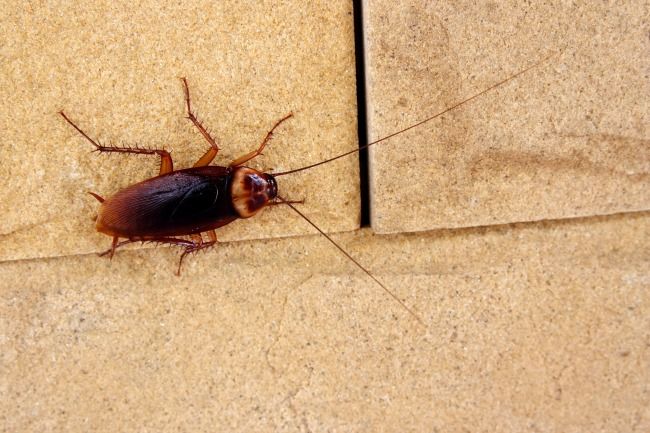Every few months a new so-called superfood seems to come around – from kale and quinoa to chia seed, acaiai and even seaweed. And now scientists have discovered a new one which they claim is the perfect balance of proteins, fats and sugars. There's just one catch – the sound of it will probably make your stomach turn. Researchers at the Institute for Stem cell Biology and Regenerative Medicine in India have discovered that cockroach milk – yes, that's right, cockroach milk – could be the perfect food for humans.
Your next snack? Perhaps not...
The milk – otherwise known as post-natal fluid – is secreted from the bugs to feed its 50 or so hatchlings, and takes the form of small crystals. "The crystals are like a complete food – they have proteins, fats and sugars. If you look into the protein sequences, they have all the essential amino acids," Sanchari Banerjee, one of the main researchers, told the Times of India.
READ MORE: New study reveals there's ONE supplement you should be taking
The "milk" derived from these is said to taste just like cow’s milk. However, don't throw out your litre of semi-skimmed just yet – it would take hundreds of the bugs to make just one glass. According to science magazine Inverse, it would take one person half a day to milk two or three cockroaches, and the critters also die during the process, meaning cockroach milk is just too expensive and labour-intense to make sense as a mass-produced product.
READ MORE: Amanda Holden has revealed her fitness tips – and they DON'T include dieting
If you're looking to improve your diet then remember there are plenty of tried and tested healthy foods around for you to gorge on. For example, the benefits of oily fish such as salmon and mackerel have long been known, and now scientists think they could help delay the menopause too. A study published in the Journal of Epidemiology and Community Health, which followed more than 14,000 women in the UK for over four years, found that those who enjoyed a daily serving of oily fish such as salmon, mackerel or sardines typically experienced the menopause three years later than the average age of 51.








